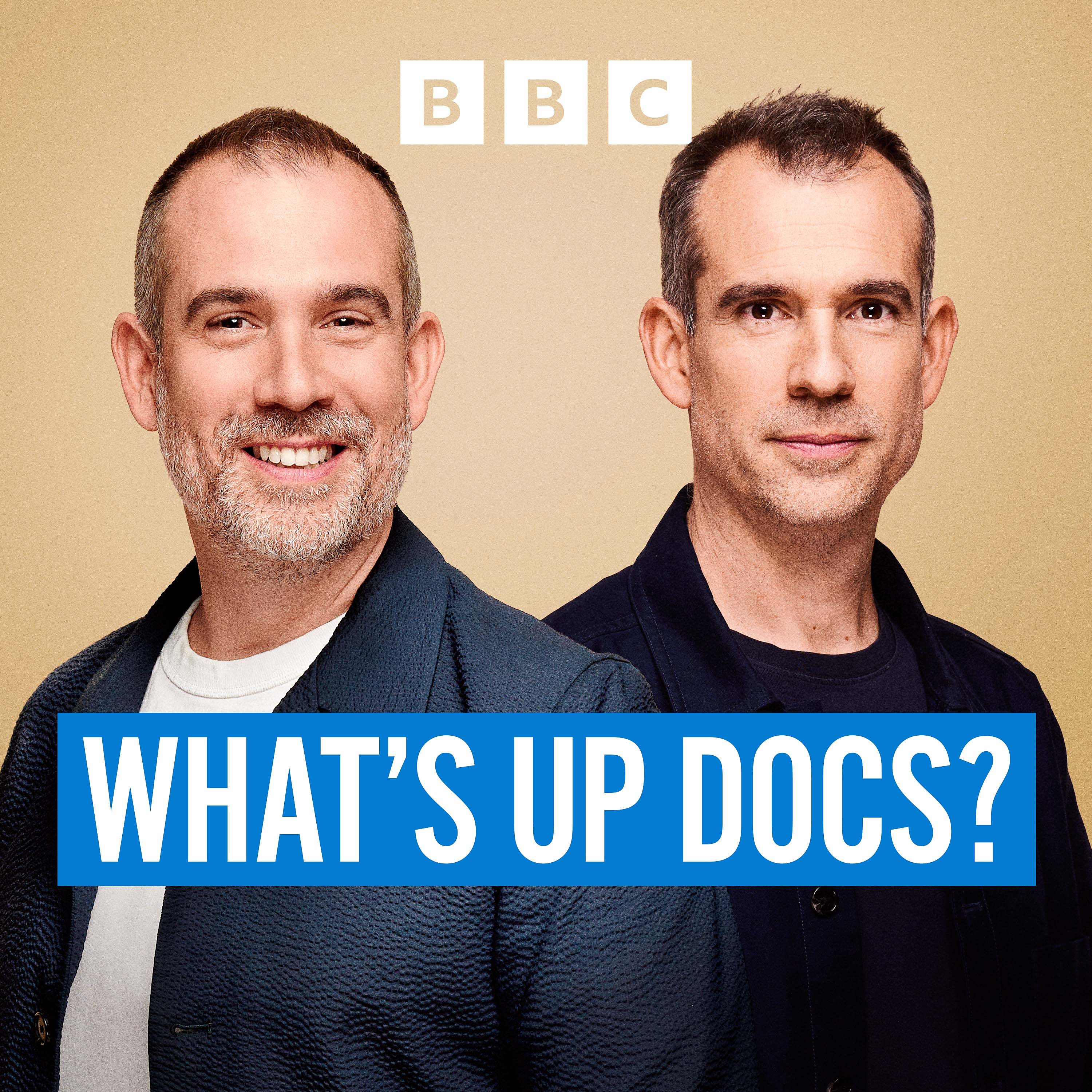

What's Up Docs?
BBC Radio 4
In this BBC Radio 4 podcast, Drs Chris and Xand van Tulleken are on a mission to help us take better care of ourselves.Although they are identical twins, Chris and Xand are very different and they never stop thinking and arguing about science and health. They want to lead healthy, happy lives and as doctors, they want this for everyone. Yet they tussle over how best to get there.When it comes to looking after our own health, it can be confusing. Medicine and science produce amazing new treatments and diagnostics every day and we are bombarded with so many headlines and pieces of advice; but how are we supposed to know what's really best for us and then successfully apply it to our lives?Drs Chris and Xand van Tulleken embrace this challenge; even as they marvel at the scientific breakthroughs, they grapple with the competing claims about health, wellbeing and how to live.From understanding testosterone therapies to microplastics in our diets, and the concept of 'hangriness' to the power of saying no - this podcast deals with the health stresses we all face every day, while taking on board how the decisions by corporations and governments affect all our health.Each episode, Chris and Xand are joined by an expert guest to examine the latest research, psychological insights, and data, to help listeners navigate the overwhelming amount of information and advice out there. They talk about the trials and tribulations in their own lives in their characteristically witty way - each teasing the other as they search for solutions. Xand has trouble sleeping , Chris has noisy knees, one of them has got an embarrassing itch. They have different ways of looking at things and find it really helpful to get the other one's point of view. These doctors are trying their best and encouraging listeners to do the same.Email: whatsupdocs@bbc.co.uk
Whatsapp: 08000 665123A Loftus Media production for BBC Radio 4.
Whatsapp: 08000 665123A Loftus Media production for BBC Radio 4.
Episodes
Mentioned books

Feb 10, 2026 • 20min
Doctors' Notes: Kissing
Dr Matilda Brindle, an evolutionary biologist at Oxford who studies sexual and affiliative behaviours, explains why kissing appears across species. She describes surprising animal examples, explains how comparative and phylogenetic methods trace kissing back millions of years, and discusses intriguing evidence for kissing in Neanderthals. The conversation highlights gaps in research and why broader data would matter.

Feb 10, 2026 • 29min
Why do we kiss?
They explore why humans kiss and how to define kissing across species. The conversation covers possible functions like mate assessment, foreplay and social bonding. Microbiomes, oxytocin, health links and infection risks get attention. Cultural variation and why some people feel disgusted are also discussed.

Feb 3, 2026 • 24min
Doctors' Notes: Focus
Duncan Astle, Professor of Neuroinformatics at Cambridge who studies attention and ADHD, joins to explore focus, attention in classrooms, and how curiosity drives learning. He discusses ADHD as a behavioral label, lifespan changes, strengths like hyperfocus, medication limits, and practical non-drug supports. The conversation also covers evolutionary views and classroom strategies to help attention.

6 snips
Feb 3, 2026 • 29min
How can you improve your focus?
Duncan Astle, Professor of Neuroinformatics at Cambridge who studies childhood development and attention, joins to talk about how attention works. He explains top-down vs bottom-up selection and why schools reveal individual differences. He discusses ADHD as an extreme of a continuum, whether tech distracts or rewires, and practical steps like removing phones and shaping environments to boost focus.

Jan 30, 2026 • 4min
Daily Dose: Laughter
Sophie Scott, neuroscientist and UCL professor honored as a CBE, studies the science of laughter and vocal communication. She explains how human laughter is unique, how babies laugh at non‑physical play, and how laughter helps toddlers learn intention, safety and social cues. Short, curious and surprisingly scientific.

Jan 29, 2026 • 3min
Daily Dose: Core Strength
James Moore, a practising physiotherapist, explains why core strength matters for everyday life. He covers core anatomy and why training supports long-term function. Short, varied activities like Pilates, walking and brief targeted sessions are highlighted. Practical, comfortable exercises and when to push harder are also discussed.

Jan 28, 2026 • 4min
Daily Dose: Fibre
A concise revisit to why fibre matters and the best places to get it. Discussion on whether variety in fibre types really changes outcomes. Comparison of whole-food fibre versus industrial or supplemental options. Clear practical nudge to prioritise fruits, vegetables, whole grains and beans for daily fibre.

Jan 27, 2026 • 26min
Doctors' Notes: Diet
Ashley Gearhardt, clinical psychologist and University of Michigan professor who created the Yale Food Addiction Scale, talks about living with addictive relationships to ultra-processed foods. She explores how industrial processing, flavor engineering and tobacco-style techniques boost craving. She explains the scale, which foods are highest risk, and practical, non-judgmental steps people can try.

Jan 27, 2026 • 29min
How can we sustain a healthy diet?
Ashley Gearhardt, clinical psychologist and professor who developed the Yale Food Addiction Scale, explains how certain foods and food engineering hijack our brains. Short, clear takes on ultra-processed foods, why willpower often fails, how manufacturers boost craving, and practical pointers for sustaining healthier, less driven eating.

Jan 26, 2026 • 5min
Daily Dose: Fresh Breath
Praveen Sharma, restorative dentistry consultant and clinical academic at the University of Birmingham, shares practical oral health advice. He covers how to build a deliberate tooth-and-gum routine. He explains the best timing for brushing, why evening cleans matter, and tips on brushing before or after breakfast. Short, actionable guidance focused on everyday dental care.


